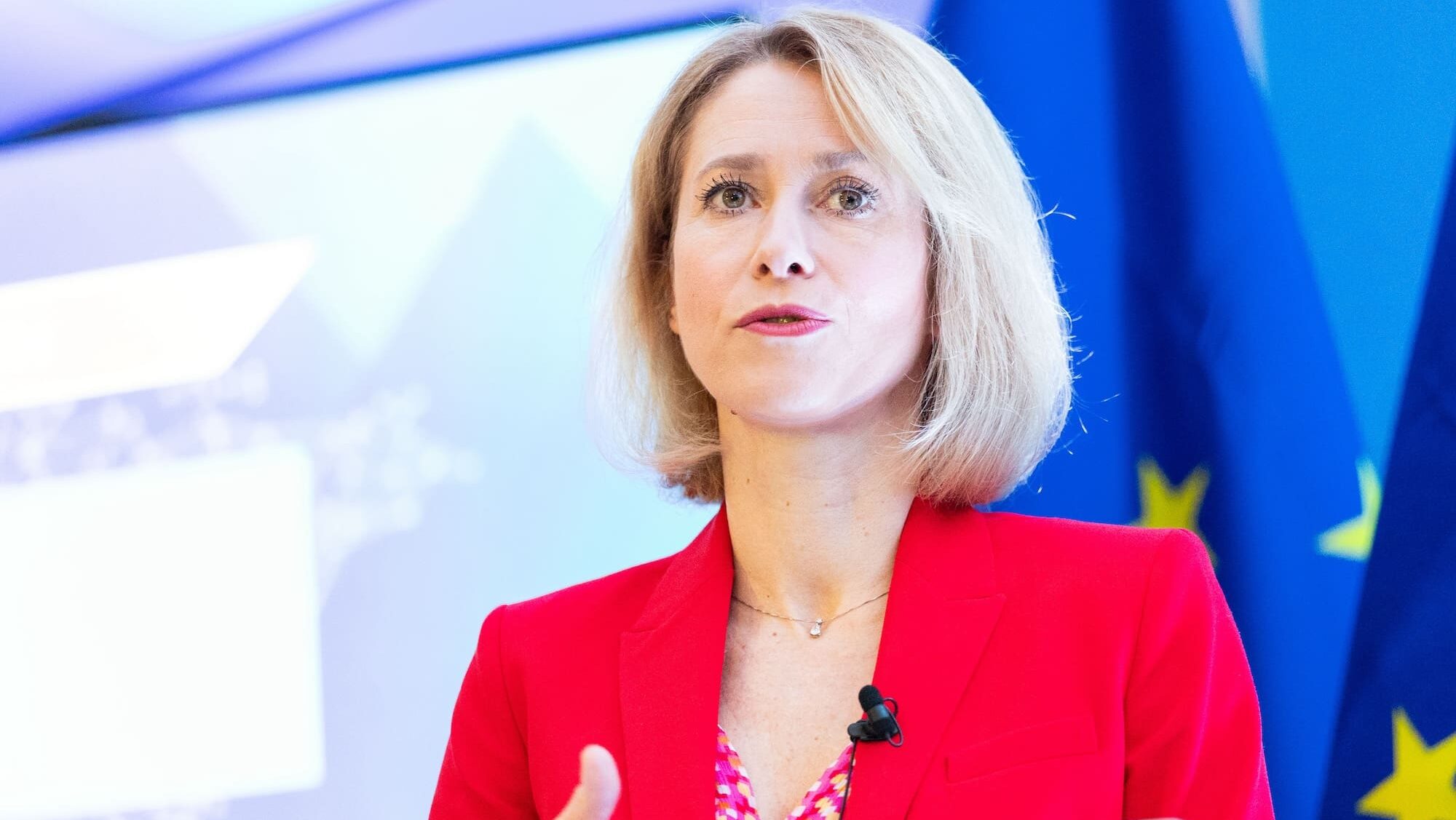
Kaja Kallas, High Representative of the Union for Foreign Affairs and Security Policy and Vice-President of the European Commission.
Photo: Bogdan Hoyaux © European Union 2025
The EU leadership has made it clear that it expects the swift formation of a government in Germany following the victory of the Christian Democratic Union/Christian Social Union (CDU/CSU) coalition in the recent elections. However, far from being a mere recommendation, the pressure from Brussels is evident: Germany must remain aligned with the EU agenda without deviations or concessions to the growing wave of public discontent with the status quo represented by Alternative für Deutschland (AfD).
The EU’s High Representative for Foreign Policy, Kaja Kallas, explicitly expressed her support for a grand coalition between the CDU and the Social Democratic Party (SPD) on Monday, February 24.
The German people have made their choice. Now they need to put together the government, and I hope that they do it as fast as possible, because we really need to move on with the decisions also on the European level that requires German participation.
Her endorsement is not merely an institutional courtesy but a clear maneuver to consolidate the dominance of traditional parties and prevent any real change in the policies that have led Germany into one of its greatest internal crises in decades.
This move confirms what many suspected: Brussels has no qualms about intervening in the internal politics of member states to maintain the current establishment, formed by conservatives and socialists, while at the same time criticizing other external voices for supporting alternative parties. When Elon Musk expresses his support for AfD, it’s foreign interference—when Brussels intervenes in Germany’s domestic government formation, it is business as usual.
These pacts between socialists and conservatives are not new in Europe, but they are increasingly met with resistance. In Germany—as in Austria—the electorate has made it clear that they are fed up with the same policies as always, yet the political elite continues to ignore the message from the ballot box. Instead of opening up to new alliances, the CDU prefers to shackle itself to the SPD, thus ensuring the continuity of policies on migration and economics that have weakened the country.
Negotiations between the CDU and SPD are progressing rapidly. CDU leader Friedrich Merz has stated that he expects to have a government in place “around Easter or by the end of April.” The conservatives seek to secure the ministries of Economy, Finance, and Foreign Affairs, while the socialists may retain the Interior Ministry.
This last portfolio is key, as it gives the SPD control over the police, borders, and asylum processes, which have been a central black hole in migration management. The current minister, Nancy Faeser, has championed open-border policies and relaxed migration controls, which have led to a rise in crime and created an atmosphere of insecurity in many German cities. She has also been behind repeated efforts to exclude AfD from public life by any means available. Only last month, Faeser announced politically motivated purges from civil service, threatening police officers with sympathies for “extremist organizations” (that is, AfD) with a de facto occupational ban. Keeping Faeser at the helm of the Interior Ministry effectively guarantees that nothing will change in these areas despite the evident failure of current policies.
Meanwhile, AfD has solidified its position as the second-largest political force in the country, achieving historic growth. In the eastern states, it has surpassed 30% of the vote, reaching 38.6% in Thuringia and 37.3% in Saxony. This surge reflects the discontent of millions of Germans, whom official politics have ignored.
AfD’s rise has unnerved the entire European political apparatus. Attacks and fear-mongering campaigns against the party have intensified from Brussels to Berlin. However, far from weakening it, these strategies have only strengthened AfD’s position as the only real alternative to the system.
The President of the European Council, António Costa, has made it clear that he expects Germany to “work closely” with the EU to build a “stronger, more prosperous, and more autonomous” Europe. Pedro Sánchez, for his part, has insisted that Berlin must lead the ecological and digital transitions—two of the top priorities imposed by Brussels.
I have conveyed to @_FriedrichMerz my congratulations for his victory in the German elections.
— António Costa (@eucopresident) February 24, 2025
I look forward to working closely with him to make Europe stronger, more prosperous and more autonomous.
These might be challenging times. But I know that, just like in the past,…
These statements confirm that the EU will not allow Germany to deviate from Brussels’ roadmap. The new CDU-SPD government will have to follow the bloc leaders’ directives without question, ensuring that the country remains on the path dictated by the Brussels elite.
But the big question is: What about the Germans who voted for change? What about those who want a different migration policy, greater protection for national industry, or a more realistic approach to energy issues? For them, Brussels’ response is clear: they have no voice.
As Olaf Scholz stated at the last World Economic Forum summit:
We have the freedom of speech in Europe and in Germany. Everyone can say what he wants, even if he is a billionaire. And what we do not accept is if this is supporting extreme-right positions.
Of course, “extreme right” means anything that the establishment does not like or that threatens its power.
What we are witnessing in Germany is yet another example of the contempt the EU treats voters with when they do not choose what is expected of them. The grand CDU-SPD coalition is not a natural alliance, nor a reflection of the popular will; it is a survival pact orchestrated by Brussels to prevent Germans from taking control of their destiny.
